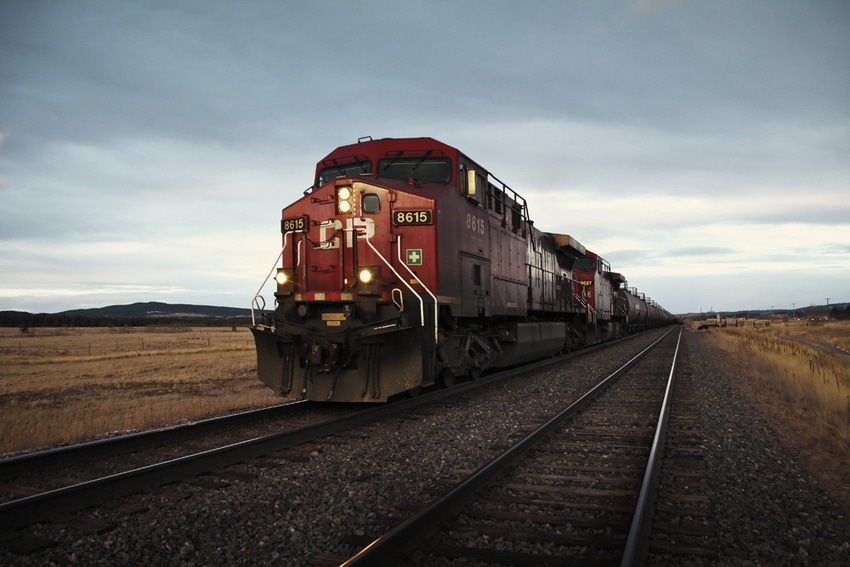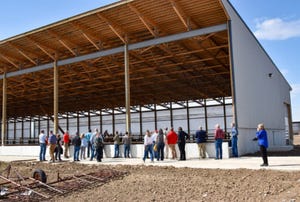Wheat growers disappointed with CP-KCS merger
Rail industry consolidation spurs fears of higher shipping rates.

Advocates for the wheat industry say the Surface Transportation Board’s approval of the Canadian Pacific Railway-Kansas City Southern Railroad merger was done without regard for the consequences on agriculture shippers. In a joint statement from U.S. Wheat Associates and the National Association of Wheat Growers, leaders of the two organizations called on the STB to conduct more rigorous oversite of rail rates and service issues going forward.
“NAWG is disappointed by today’s STB announcement and maintains our concerns that the merger of CP and KCS will impede competition in the rail market and increase rail rates,” NAWG CEO Chandler Goule said. “With 50% of wheat being exported, wheat is heavily reliant on rail transportation to move across the United States. Since the merger was announced in 2021, NAWG has filed four public comments with the STB opposing the merger, citing a myriad of concerns on the impact to competition, unfair access to competing wheat producing countries, and changes to tariff provisions that could impact wheat farmers.”
STB’s approval of the merger includes a seven-year oversight period as well as other conditions intended to protect workers, limit environmental impacts and ensure competition. The board also noted that the two companies have no track redundancies or overlapping routes. The only place they connect is in Kansas City.
Still, wheat representatives point out that the merger leaves the U.S. with only six Class I railroads. They contend that the market share held by those companies has serious implications for U.S. wheat’s competitiveness compared to other exporters.
“U.S. rail industry consolidation has led to poorer, not improved, service for agricultural shippers,” USW president Vince Peterson says. “In addition, we see extreme disparity in rates for wheat shippers. Rail rates over the last decade have increased exponentially and rates for wheat are higher than rates for other commodities even with similar handling characteristics. Those higher rates make U.S. wheat less competitive in the global market at a time when higher prices already hurt our competitiveness.”
According to Soy Transportation Coalition Executive Director Mike Steenhoek, time will tell if the merger has negative effects. He says it is important to keep in mind that the new Canadian Pacific Kansas City Railroad will remain the country’s smallest Class I rail company in terms of revenue and track mileage. He also notes that the merger could have benefits.
CPKC will be the first railroad to provide a single-line service connection to Canada, the U.S. and Mexico. Some believe that could result in enhanced marketing opportunities as well as better access to new geographic regions, particularly in the south central United States and Mexico.
“Whenever a merger or acquisition among large providers of a particular service occurs – including within the railroad industry – it is healthy to have some degree of concern given how mergers and acquisitions in the past have indeed resulted in a reduction of rail service access or increased rates among agricultural shippers,” Steenhoek says. “In addition, a particular merger or acquisition often inspires and motivates additional mergers and acquisitions. Will this acquisition result in increased energy for further consolidation among Class I railroads? I do not know of many agricultural shippers who would welcome such a prospect. It obviously remains to be seen whether this will occur.”
About the Author(s)
You May Also Like





